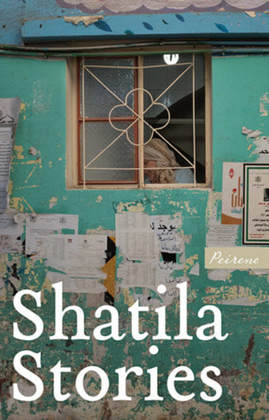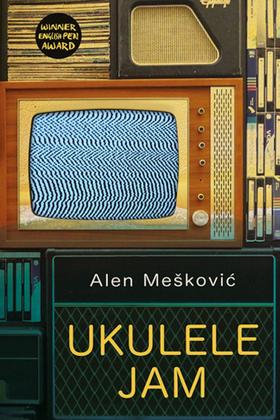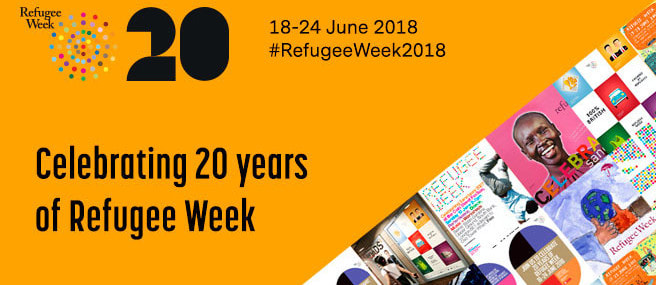Shatila Stories by Omar Ahmad, Nibal Alalo, Safaa Algharbawi, Omar Alndaf, Safiya Badran, Fatima Ghazzawi, Samih Mahmoud, Hiba Maree, Rayan Sukkar, translated by Nashwa Gowanlock
A woman, along with her parents, her husband and her brother, travels from Damascus to Shatila, the Palestinian refugee camp that’s stood for almost seven decades on the outskirts of Beirut. It’s a crowded, violent place with little privacy, open sewers and dodgy electricity, where a father sells his child in marriage to an elderly widower to pay off his drinking and gambling debts and save her from something worse.
Yet there’s hope and opportunity alongside the gruelling poverty, as Adam finds love alongside his voice as a singer, and Reham finds the courage to separate from the husband who couldn’t accept their disabled daughter as his own. Hope and opportunity also for the six women and three men, all residents of Shatila, who contributed to this novella following a three-day creative writing workshop run by Peirene Press.
Indeed, the book’s backstory is as inspiring as the work itself. At the beginning of 2017, London-based independent publisher and writer Meike Ziervogel approached an NGO that runs community centres in refugee camps with an idea about a creative partnership with Shatila refugees. In partnership with London-based Syrian editor Suhir Helal, she selected “the nine least bad” of twenty initial contributions and worked with their authors to extend their writing and storytelling skills and blend their separate words into a cohesive whole.
The result is a book of which everyone involved can be proud. Great literature it’s not – although the novella contains a few gems such as the one quoted at the beginning of this review – but nor is it by any means the refugee can also write kind of book the editors at one point feared. Having received my copy gratis from the publishers, I purchased a copy for a friend. Read more about it and watch the book trailer here.
Ukelele Jam by Alen Mešković translated by Paul Russell Garrett
A Bosnian Muslim, Miki can’t bear to think about the two days the family spent in Serbian custody before being bussed to a Croatian refugee camp on the coast. Conditions aren’t too bad as they’re housed in a holiday resort that, despite the war, still welcomes tourists from Western Europe in search of sea and sun. But, having left their home in a hurry, the family have few possessions and little money to buy more. Besides which, Miki and his parents are frantic with worry about Neno, languishing in a Serbian concentration camp they know not where.
While his parents stay glued to the news reports, and his father fails to find work, Miki goes about the normal business of being a teenager: making friends, learning to kiss, listening to music on cassette tapes and staying up late drinking beer. Although ethnicity is noted, it’s of little consequence until war breaks out between Croats and Bosnians and tempers fly. Miki longs to follow his friends’ families to Sweden, but his parents are loath to leave their homeland.
Alen Mešković’s debut novel is a poignant yet optimistic coming-of-age story against the backdrop of hatred and violence that erupted within a part of Europe where different cultures had lived in harmony under Tito since the end of the Second World War. Born in Bosnia and migrating to Denmark in 1977, Ukelele Jam rose from the author’s own experience of being a refugee. I’d probably have enjoyed it more if it had been shorter, as the juvenilia became tiresome after a while. Nevertheless, an important book. Thanks to Seren Books for my review copy.
The Photographer by Meike Ziervogel: a young family builds a new life in a refugee camp near Hamburg at the end of the Second World War
Exit West by Mohsin Hamid: a touch of magic realism in a gritty tale of burgeoning love within an atmosphere of murder and mayhem
These Are The Names by Tommy Wieringa: fifteen desperate people hand over their documentation to the traffickers, assured they have a better chance of being granted asylum if they arrive with no names
breach by Olumide Popoola and Annie Holmes: a collection of short stories set in the now dismantled Calais refugee camp known as The Jungle
The Spice Box Letters by Eve Makis: an elderly Armenian living in Nicosia is exiled a second time with the partitioning of Cyprus into Greek and Turkish sectors

























 RSS Feed
RSS Feed





















